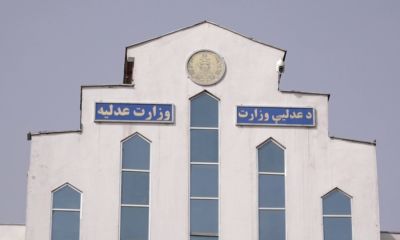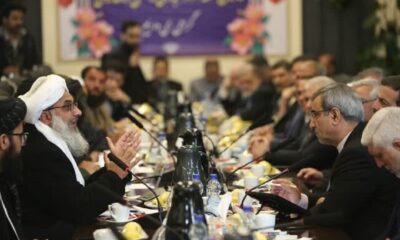Latest News
Afghan peace plan outlines roadmap to future political system
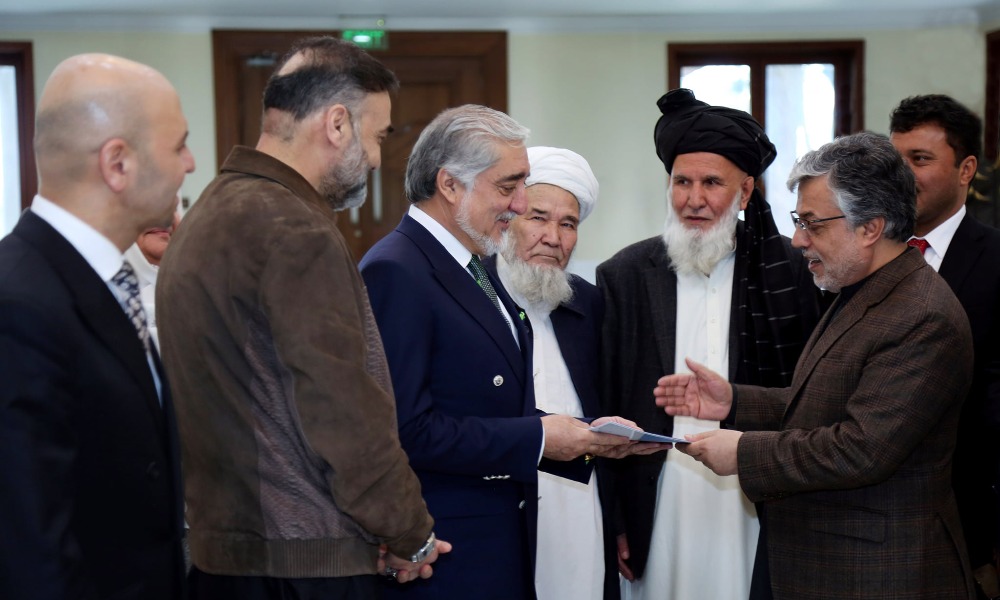
The High Council for the National Reconciliation (HCNR) has drafted a unified peace plan for the upcoming Istanbul Summit.
A copy of the draft seen by Ariana News shows that the plan has four parts including a principle for the future of Afghanistan, a Peace roadmap/President Ashraf Ghani’s plan, a future political system, and an end to the ongoing conflict in the country.
According to the plan, two-thirds of the power is earmarked for the Islamic republic and one-third for the Taliban.
The first part of the plan calls for a number of stipulations including Islam to be the official religion of Afghanistan; civil rights to be preserved based on the Afghan Constitution; an amendment brought to parts of the Constitution, for International support to be preserved, and for a neutral foreign policy, elections, and an accountable government.
The second part includes Ghani’s three-phase roadmap to the restoration of peace in the country.
Ghani’s roadmap – from an unending war towards a just and lasting peace includes three phases, a political agreement; a peace government; and peacebuilding, state-building, and market-building.
In the first phase, Ghani proposed a political settlement, an internationally monitored ceasefire, a regional and international guarantee of peace as well as continued counter-terrorism efforts, and the convening of a Loya Jirga to approve the agreement.
The second phase will be to hold a presidential election and establish a “government of peace” and implement arrangements to move towards a new political system.
The third phase will involve building a “constitutional framework, security, reintegration of refugees and considering government priorities” for Afghanistan’s development.
In the third part of the draft, two political systems – a Presidential Structure with four Vice Presidents including a woman or a parliamentary system that could be implemented after a referendum for amending the Constitution – have been proposed for the future of Afghanistan
The fourth part is focused on ending the war in the country. In this part, a regular framework for the end of the conflict, and the implementation and monitoring of a ceasefire are highlighted.
This comes as US Special Representative for Afghanistan Reconciliation Zalmay Khalilzad met with President Ashraf Ghani and Abdullah Abdullah Chairman of the High Council for National Reconciliation (HCNR) on Saturday to discuss the peace process and the upcoming Istanbul summit.
“Khalilzad met with Ghani twice during the day and discussed the upcoming Istanbul summit, the timeframe, finalization of the list of participants, and the preparations for the conference,” the Presidential Palace said.
HCNR Chairman Abdullah stated in a tweet that he and Khalilzad discussed “the Afghan Peace Process, the Doha talks, internal consensus and preparations for the upcoming conference in Turkey.”
“We welcome the acceleration of the process & achieving a comprehensive political settlement,” Abdullah tweeted.
The Istanbul summit is expected to be held on April 16 in Turkey.
Latest News
Justice Ministry: Protests of Islamic laws considered protests against Sharia
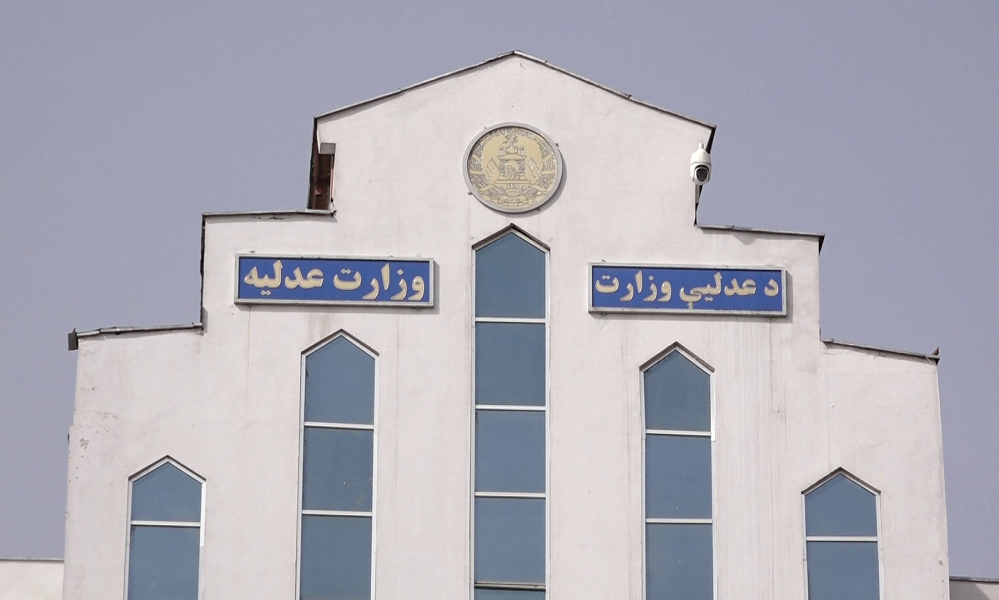
The Ministry of Justice announced on Wednesday that there is no article, clause, subsection, provision, or ruling in the legislative documents of the Islamic Emirate that is contrary to Islamic Sharia or lacks a Sharia-based source. Rather, these documents are fully in accordance with Islamic Sharia, and protesting against them is considered a protest against Sharia itself.
According to a statement released by the Ministry of Justice, such protests have no Sharia-based or scholarly foundation and are carried out, out of ignorance or deliberate disregard. Such actions are deemed a crime under Sharia, and those who object to these laws will be referred to judicial and legal bodies for prosecution, the statement read.
“The legislative documents of the Islamic Emirate are drafted and derived by multiple committees of qualified Afghan scholars at the level of each relevant ministry and department, the Ministry of Justice, the Supreme Court, and the Office of the Leader of the Islamic Emirate, using the Book of Allah, the Sunnah of the Messenger of Allah (Peace Be Upon Him), and authoritative Hanafi jurisprudential texts,” the statement reads.
The Ministry of Justice further emphasized that the aforementioned legislative documents are repeatedly reviewed for compliance with Islamic Sharia and, after that, are submitted to the Leader of the Islamic Emirate for endorsement.
Latest News
Conference on Qatar’s mediation diplomacy held in Kabul
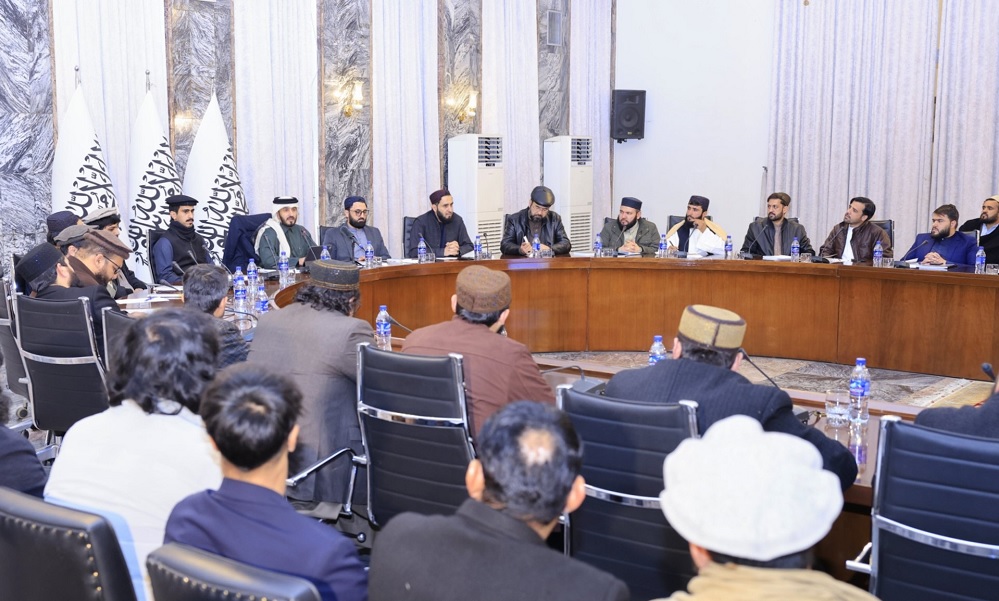
The Center of Strategic Studies at Afghanistan’s Ministry of Foreign Affairs has organized an academic conference titled “Mediation Diplomacy in Qatar’s Foreign Policy.”
According to a statement from the Ministry of Foreign Affairs, Qatar’s Ambassador, Mirdef Al Qashouti, delivered a detailed and comprehensive presentation examining the role and importance of mediation diplomacy within Qatar’s foreign policy framework.
The conference was attended by a number of officials and staff members from various departments of the Ministry of Foreign Affairs, as well as researchers, professors, and students of international relations from universities across the country.
Latest News
Muttaqi holds talks with Turkmenistan FM on expanding regional cooperation
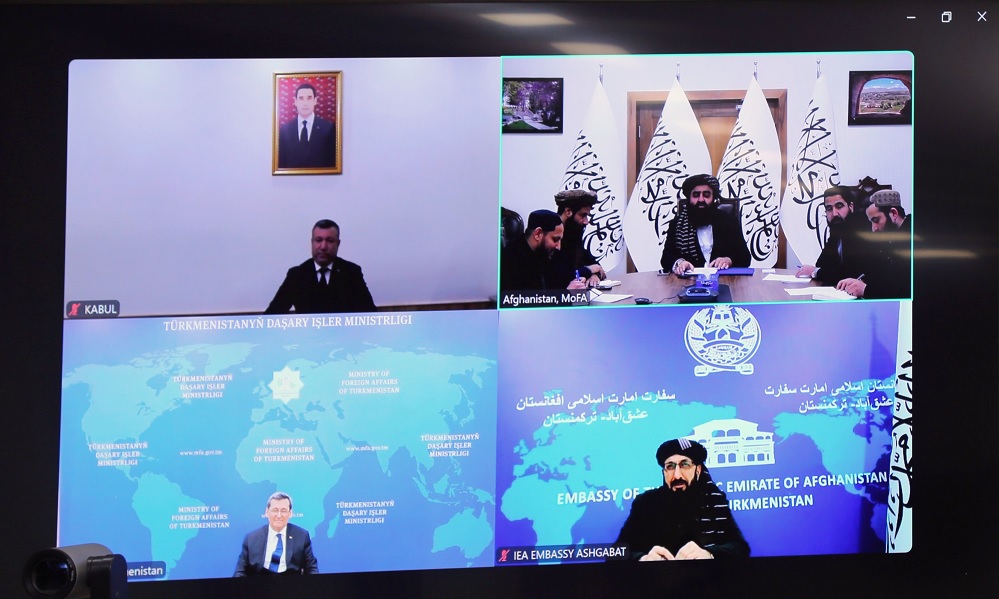
Amir Khan Muttaqi, Foreign Minister of the Islamic Emirate of Afghanistan, held a video conference with Rashid Meredov, First Deputy Chair of the Cabinet of Ministers and Minister for Foreign Affairs of Turkmenistan, to discuss expanding regional cooperation and future bilateral plans for this year.
According to a statement issued by the Ministry of Foreign Affairs, Muttaqi welcomed the positive momentum in relations between the two countries, noting that strengthened and substantive ties have led to the launch of practical work on the TAPI gas pipeline project along the Herat route. He added that railway and power transmission (TAP) projects are also close to implementation, reflecting the steady expansion of bilateral relations.
Rashid Meredov highlighted the long-standing and friendly relations between Afghanistan and Turkmenistan, expressing satisfaction with the growing cooperation at various levels. He emphasized the need for close coordination in implementing joint economic projects, facilitating official visits by senior officials, and organizing upcoming bilateral initiatives.
The two foreign ministers concluded the talks by underscoring the importance of enhancing regional cooperation and dialogue, particularly along the Afghanistan–Central Asia corridor, describing such engagement as both significant and valuable.
-

 Business4 days ago
Business4 days agoAfghanistan sends gold to Uzbekistan for processing
-

 Sport2 days ago
Sport2 days agoThrilling battles await as AFC Futsal Asian Cup Indonesia 2026 set to kickoff in hours
-

 Latest News5 days ago
Latest News5 days agoFailed Afghan asylum seekers need to return home, Sweden’s migration minister says
-

 Sport3 days ago
Sport3 days agoAfghanistan futsal team arrives in Indonesia ahead of Asian Cup
-

 Regional3 days ago
Regional3 days agoAirlines reroute, cancel flights as tensions ramp up over Iran
-

 Sport3 days ago
Sport3 days agoJapan defends AFC U-23 Asian Cup title with dominant win over China
-

 Latest News4 days ago
Latest News4 days agoUzbekistan says security concerns, including Afghanistan, behind joining Trump’s Board of Peace
-

 Business3 days ago
Business3 days agoPakistan reports 56% drop in exports to Afghanistan in second half of 2025


